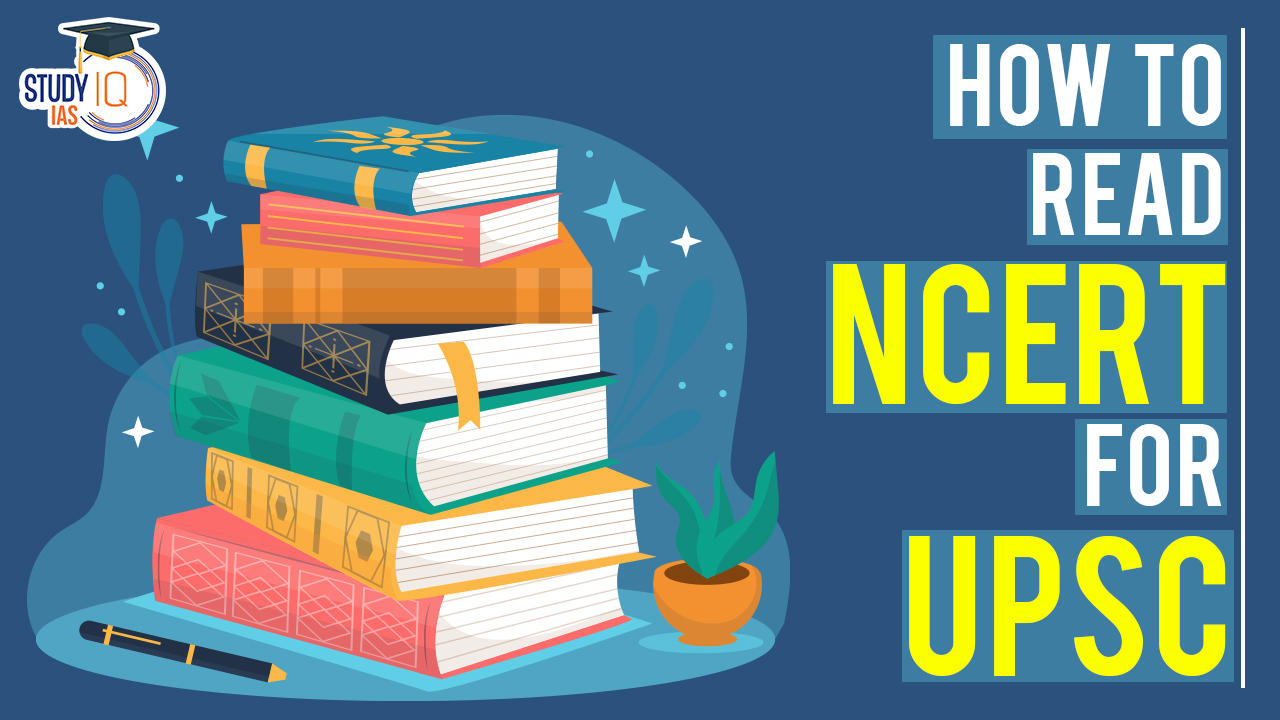Table of Contents
How to Read NCERT for UPSC
Candidates should begin reading NCERT Books for the UPSC at the class sixth level and work their way up to the senior levels. Additionally, it is preferable to finish one subject at a time to prevent topic confusion. Effective and thorough study of the NCERT books is essential for UPSC exam preparation. The analysis shows that NCERT books are frequently used, either directly or indirectly, in questions from previous year’s exam papers.
The majority of the subjects covered in the syllabus are briefly covered in NCERT Books, hence it is crucial to thoroughly study these books. Before using any standard book for preparation, it is recommended that the NCERT Books be read through first.
Strategy to Read NCERT for UPSC
The majority of subjects in the civil services test are prepared using the NCERT Books. Always maintain the perspective of the person asking the question when gazing in order to match his mental frequency. Despite not covering the whole UPSC Syllabus, the NCERT Books do cover the majority of the foundations.
- When beginning your initial reading of the NCERT Books, keep the UPSC Syllabus close at hand. This aids in the connection between the subjects discussed.
- Understanding the fundamentals and gaining conceptual clarity requires reading the NCERTs.
- The initial reading should be limited to reading and gaining a fundamental understanding of the ideas.
- Schedule-wise, divide your topics and subtopics. To finish NCERT, you must follow a strict UPSC preparation schedule.
- Micro-manage the themes as you read the second time. Always take notes in accordance with the subjects covered in the UPSC Syllabus.
- When reading the NCERT Books, always refer to the UPSC Previous Year Question Papers. Underline the key concepts in accordance with the UPSC Prelims Syllabus.
- Reduce the time you spend reading the same topics as you do more reading.
- Every subject necessitates a unique note-taking method. For instance, to help students remember factual material, history requires a combination of flowcharts and infographics, whereas geography calls for mnemonics.
- To thoroughly cover the UPSC Mains Syllabus, always try to tie the syllabus to current events.
Why Read NCERT Books for UPSC Exam?
For the UPSC Exam, NCERT should be studied because:
- The NCERT uses clear, straightforward language.
- The NCERT books are published by the government, and renowned academics conduct extensive research on the study guides.
- The standard texts used for the majority of competitive exams are NCERTs.
- All students and hopefuls turn to NCERT books because of their accessibility and availability in both Hindi and English.
- Because the NCERTs are verified and rechecked numerous times before publication, the facts are generally accurate.
Timetable to Complete NCERT for UPSC
There are around 40–45 books to cover when all the courses from grades 6–12 are combined. To finish the NCERT Books, allow three to three and a half months. For the UPSC Exam, a systematic approach and a strict schedule for finishing the NCERT Books are essential.
To finish the NCERT books for the UPSC, follow the directions provided:
1st Month Reading Plan for NCERT Books for UPSC
- Purchase the UPSC Syllabus as well as NCERTs for all of your classes. They are also available for download on the official website.
- The purpose of the first reading is to achieve conceptual clarity and comprehend the fundamentals.
- When first read, the NCERTs are daunting, but with additional reads, they become illuminating
- Always sit down with a pencil while reading the first chapter, and underline key points.
- Making a schedule and strictly adhering to it makes the task 50% complete.
2nd Month’s Timetable to Study NCERT Books
- When the fundamentals and concepts are understood, a second reading with PYQs should be adequate. using the UPSC Prelims as an example
- One can better grasp the questions on the UPSC Exam by consulting previous years’ questions.
- Control the subjects in accordance with the UPSC Syllabus. Establish daily, weekly, and monthly completion targets.
- For additional NCERT readings, bring a pen and rubber.
- Now that you have a better understanding of the syllabus, try deleting the parts that don’t seem important and marking the key elements with a pen.
3rd Month Strategy for Complete NCERT Books
- The majority of books across all disciplines and classes need to be finished by this point.
- Each subject’s notes call for a unique note-taking approach and style. To be useful during revision, NCERT notes should always be 3/4 the size of the chapter.
- When reading the NCERTs for the last time, consider using a highlighter to draw attention to the key details and any crucial concepts that were mentioned.
- This time, practising PYQs and mocks simultaneously is recommended. The NCERTs can be practised and revised to keep the preparation on track.
- Students can use the NCERT notes for extra revisions after finishing the NCERTs.





















 WhatsApp
WhatsApp